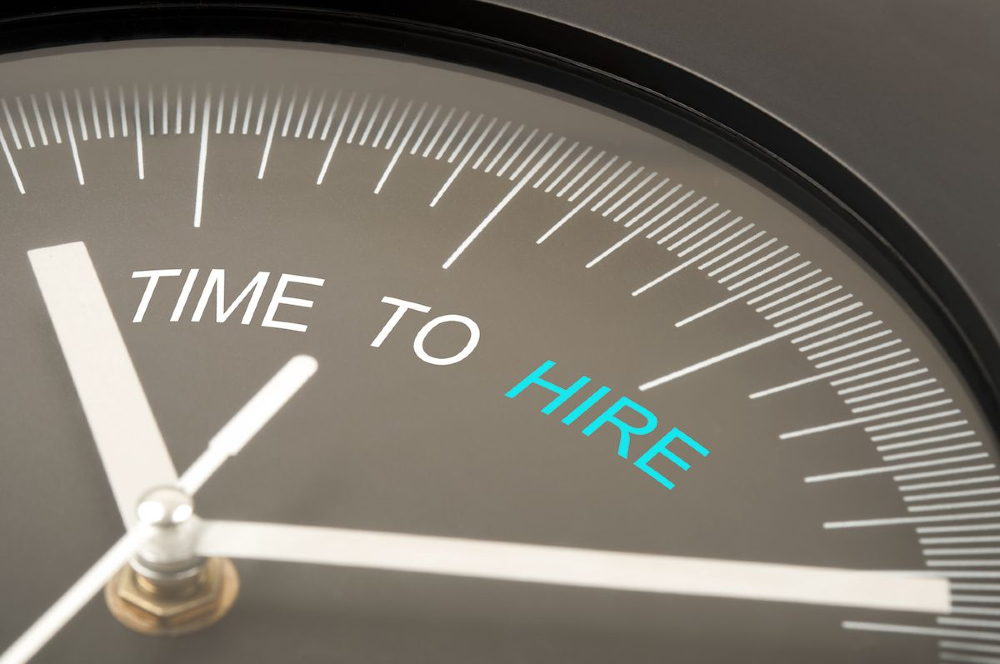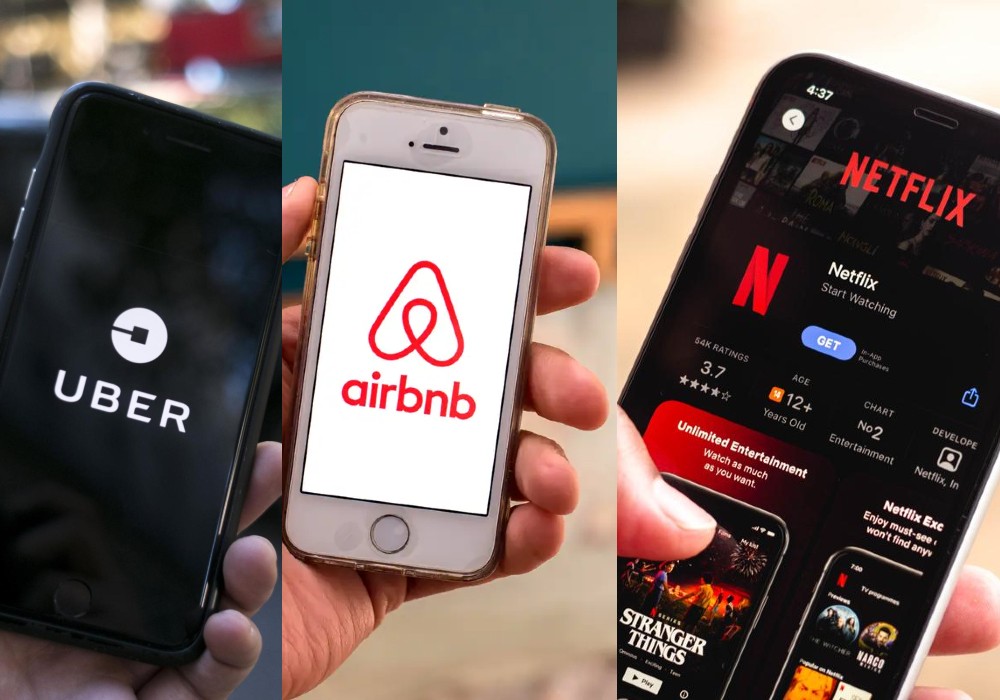
Hiring is a challenge for most businesses. It's more than just finding new employees, or the onboarding and training process. Did you know that only a handful of companies take less than a month for their typical time-to-hire? The remainder will see the length of their own hiring process fall anywhere between one to four months!
The time it takes to hire just one person can have a significant impact on a company’s bottom line, especially if they're competing with other companies for the top talent. For example, a study by HackerRank found that the time-to-hire rates can reach up to 45 days for tech and digital roles at large companies. Translation: That's 45 days of lost productivity, wasted money on advertising/job boards, or both!
You see, recruiters and/or hiring managers spend a lot of time making sure that the candidates are suitably qualified for the position, there aren't any red flags, and that he/she will be a good fit for the company culture, among other steps. This can be challenging when you have limited resources, and hundreds (or even thousands!) of applicants for each open role. Added to that is the great pressure to hire quickly, so that they can fill open roles faster than their competitors do. They also want to make sure they're hiring only the best; if they don't get it right, they'll lose out on valuable talent (and money).
Here's another thing to consider: Most hiring managers don't have that much of a budget to work with (unless you’re working for a mega corporation). In fact, according to research carried out by HR software company Personio, 55% of HR managers have either had their budgets already slashed, or are expecting them to be slashed in the coming months, as businesses prune their budgets in preparation to face a potential global financial crash.
So how can hiring managers find great candidates for their open roles? And how can they speed up this process so they don't lose out on valuable talent? In many cases, you can bring your time-to-hire down significantly if you follow some simple strategies. But first…
The term 'time-to-hire' (TTH) refers to the measure of how long it takes to close one position, which starts from posting the available job role, right up until the day you make an offer.
Hiring is a crucial performance pointer for HR teams. A short TTH shows that your team is well-organised and efficient in its process of recruiting, possesses good communication skills, plus having the ability to effectively handle both internal stakeholders and external candidates. In addition, it’s more likely that candidates will be satisfied with the level of treatment and candidate experience they receive during their applications.

Taking too long to fill the openings, or even making a bad hire, will be very costly in the long run. Research shows that even an average employee can cost a company around USD3,500, both direct and indirect. If you're wondering why this is so, it's important to note that there are various potentially high costs involved in the recruiting process, such as advertising the job role, the time cost of a recruiter (internal or external) in reviewing resumes and performing other relevant tasks, the time cost of the person conducting the interviews, background checks and screening, as well as various pre-employment assessment tests.
When you're looking at the number above, think about how much money would be lost if you needed to hire for more than one role, more so if the new employee(s) chooses not to stay after their probationary period; that's thousands of dollars and months of productivity lost!
There’s no “one-answer-fits-all” here, but it can be safely stated that the time taken by your company to hire one person is probably longer than you think!
According to one study, the average TTH in organisations around the world is 42 days – that’s just a little over two months! However, there are also many variables to be taken into consideration that can impact the TTH, such as location, industry, and qualification level of the candidate.
For example, some countries experience much longer times, like India with an average of 58 days. In comparison, the United States notes an average of 38 days, with Australia, Singapore, and Hong Kong looking at averages of 36 days, 30 days, and 29 days, respectively. The statistics also vary between industries: Software companies tend to have a quicker rate at about 36 days, whereas accounting and consulting firms take an average of 55 days.
The longest TTH occurs when businesses are not properly equipped to hire, or don't have a proper process in place to determine which candidates should move forward. It also happens when they have a shortage of quality candidates available (i.e., too many unsuitable applications), or if they don't know how long their decision making process will take, so they delay moving someone through until they've made up their mind. Other reasons include complexity around internal processes, or issues where there isn't enough information available on why some candidates aren't moving forward even though they've shown that they might be a good fit.

Uber, Airbnb, and Netflix are three companies that have a relatively short TTH. In fact, they're some of the fastest to hire on average, because they don't waste too much time on recruiting, interviewing, and processing candidates. Let's have a look at each one:
They utilise a simple five-step hiring process which first involves submitting an application online. The applicant would then go through two rounds of interviews (online or in-person) with a possible assessment, complete an extensive background check; undergo drug testing, and then having a final onsite follow-up meeting with a HR representative.
Airbnb's hiring process generally involves several stages which begins with filling out their online application form. If selected, you'll get invited to an in-person or virtual interview, by one or more recruiters at different times. You'd then need to attend a further interview for cultural fit to assess whether you align with Airbnb's core values; go through a technical assessment when invited back for another round of interviews; pass an extensive background check before being offered employment.
The hiring process at Netflix is simple yet effective – candidates must submit their online applications, then wait until they hear back regarding the next steps, which includes an initial screening and video interviewing, before getting invited for technical assessments. Candidates may also be interviewed by potential colleagues to evaluate their fit with the team and the company culture. The final step involves getting hired after passing the tests and an extensive background check successfully!
The faster you hire, the more time you have to focus on your company's core business. A quick hiring process also means that hiring managers will be able to evaluate candidates more thoroughly before making a final decision about who gets hired – and if there's anything about a candidate that isn't quite right for the position, it's easier to reject them without feeling too guilty or apologetic (which can leave both parties feeling awkward).
Who wouldn’t be happy when told: “You get to save money by cutting down on recruitment agency fees and other costs associated with hiring”? It's estimated that companies lose USD1 billion annually due to bad hires; by cutting down on how long it takes to make those hires, they could save themselves tonnes of money in reduced costs associated with mistakes and employee turnover.
There will always be other companies who are able to hire quicker than yours. If it takes too long for you to close on a candidate, there may be some top talent who will be lured away from under your nose. There's a term called 'salary cost' which you'd need to be aware of: If you wait too long, the candidate may receive a better counteroffer from your competition, resulting in a bidding war, thus increasing the salary cost.

A faster TTH will help you attract better candidates, because it means less wasted time in interviews, which will in turn show that people want to work at your company, and you’re able to respond efficiently. That translates into savings as well – you won't need as many recruiters or advertising dollars because of how quickly jobs are filled up after being posted online. Ultimately, you’ll have a greater peace of mind in knowing that they'll be more likely to say yes when you ask them if they want to come work for you.
A shorter hiring process can also improve your company's culture. As mentioned above, it will show that people are eager to work at your company – and they'll be even more excited once they're hired! This means that you'll be able to attract the top talent and get them on board faster.
Finally, a shorter TTH will help boost productivity by making sure there aren’t any gaps in the workforce when people leave for other jobs or retire. This means that you'll be able to get more done in less time, which will help them achieve their targets faster, and aid in making your employer brand stronger by showing how quickly things get done at your company. Did you also know that lost productivity cost businesses a shocking USD1.8 trillion every year?
The bottom-line: A shorter time-to-hire can help companies find quality candidates faster and save money. The quicker you can bring someone on board, the sooner they can start contributing to your company's bottom line.
This metric is also an effective way for management teams to measure how well their recruiting are performing. If a company consistently has longer than average time-to-hires for similar positions, this may indicate that there is a need for improvement in recruiting practices or onboarding processes. TTH can also be used as a proxy for quality of hiring process: If candidates tend to not accept offers quickly after being selected, or if they leave shortly after starting work, then this suggests that there may be issues with retention or performance expectations related back to recruitment efforts by managers who were involved in making those selections.
To sum up, your company's TTH involves several stages. It takes a long time to hire one person, and even longer to find the right fit, because the recruiter/hiring manager has to go through multiple steps before making a decision to offer or not on an employment contract. Which is why it's incredibly important to have the right people working together with you in order to help expedite everything, thus helping you save valuable resources. Enter GRIT Talent Platform, which not only cuts hiring time to 2-3 weeks on average and allows you to select from the active candidates database that’s growing 300% month-on-month, it also provides you with an automated interview scheduling and feedback feature to cut time spent on managing the recruiting process by 70% on average. The best part: It only costs USD999, which is a stark contrast from the four-figure amounts you would normally face in a typical cost per hire!
Join over 500 companies that are hiring (effectively and efficiently) with GRIT!